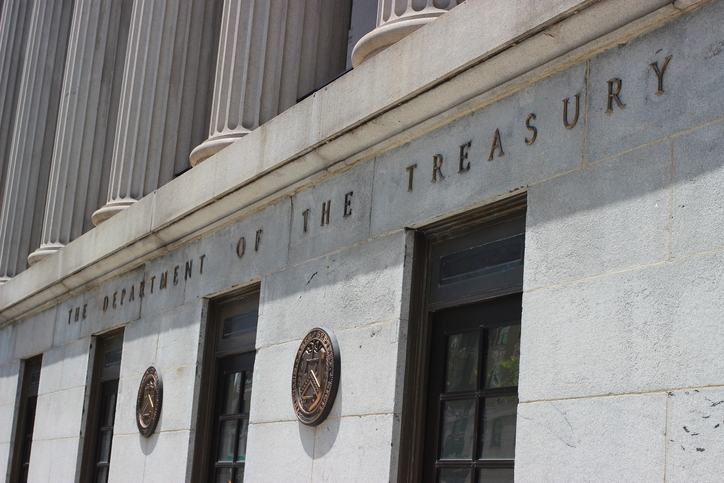Advertisement
Treasury Department Releases Housing Reform Plan

On March 27, 2019, President Trump issued a Presidential Memorandum directing the Secretary of the Treasury to develop a plan for comprehensive reform to the housing finance system which “continues to face significant and fundamental challenges” that have persisted since the financial crisis of 2008.
 In response, the U.S. Department of Treasury released plans detailing recommendations to reform the housing finance system. The U.S. Department of the Treasury Housing Reform Plan (Treasury Plan) contains 49 recommendations . The majority of the recommendations focus on administrative reforms that would not require Congressional approval. The Treasury Plan also notes that it would prefer Congress to enact comprehensive housing finance reform legislation, and that it would “support legislation that authorizes an explicit, paid-for guarantee backed by the full faith and credit of the federal government that is limited to the timely payment of principal and interest on qualifying mortgage-backed securities (MBS).
In response, the U.S. Department of Treasury released plans detailing recommendations to reform the housing finance system. The U.S. Department of the Treasury Housing Reform Plan (Treasury Plan) contains 49 recommendations . The majority of the recommendations focus on administrative reforms that would not require Congressional approval. The Treasury Plan also notes that it would prefer Congress to enact comprehensive housing finance reform legislation, and that it would “support legislation that authorizes an explicit, paid-for guarantee backed by the full faith and credit of the federal government that is limited to the timely payment of principal and interest on qualifying mortgage-backed securities (MBS).The most impactful recommendation is to end conservatorship for Fannie Mae and Freddie Mac (the GSEs). Preconditions for ending conservatorship and options for recapitalizing the GSEs are detailed, along with an administrative recommendation that each GSE should be permitted to retain earnings in excess of the $3 billion capital reserves currently permitted.
The Treasury Plan also supports the Consumer Financial Protection Bureau’s proposal to simplify the qualified mortgage (QM) rule by eliminating the QM patch for GSE-eligible loans as a way to create a more level playing field between the GSEs and private sector competitors. The Department states that the “QM patch gives the GSEs a competitive advantage over portfolio lenders and other market participants to the extent that mortgage lenders face lower risks under the ATR rule for underwriting GSE-eligible loans, particularly if they actually sell those loans to the GSEs.” The QM patch is scheduled to expire on Jan. 10, 2021.
Even policy considerations such as rent control are considered in the Plan. The Treasury Plan indicates that regulatory barriers such as rent control contribute to rising housing costs and interferes with local housing markets as it tends to decrease the supply and quality of available housing.
The plan states: “Treasury recommends: FHFA should revisit the GSEs’ underwriting criteria for acquisitions of multifamily loans secured by properties in jurisdictions that adopt rent-control laws or other undue impediments to housing development.” If implemented by the FHFA, it would appear the GSEs would scrutinize and likely restrict eligibility for loans in rent-controlled areas.
Overall, the Treasury Plan lacks specifics regarding some of the recommendations and does not contain any timeline for implementation. It remains to be seen how long the changes may take and which recommendations will be implemented by Congressional action or administrative steps will be taken.
Gavin T. Ales is chief compliance officer with Torrance, Calif.-based DocMagic Inc. He may be reached by phone at (800) 649-1362, ext. 6446 or e-mail [email protected].
This article originally appeared in the October 2019 print edition of National Mortgage Professional Magazine.
About the author





